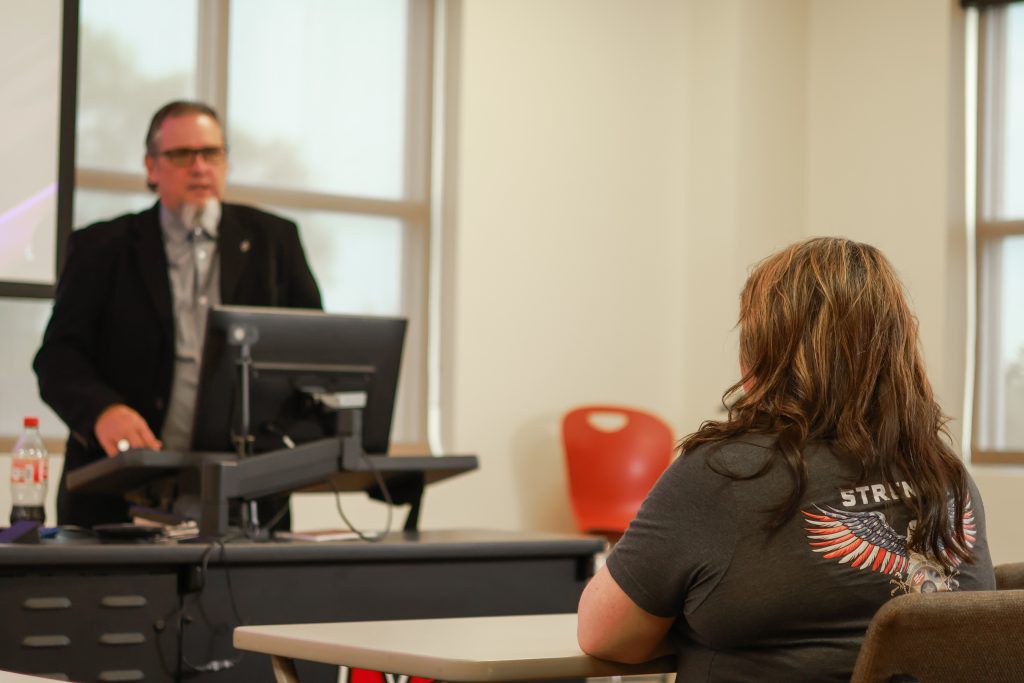
Criminal Justice Administration & Ethics
Bachelor of Science
Mid-America Christian University’s Bachelor of Science in Criminal Justice Administration & Ethics prepares students for impactful careers in law enforcement and related fields. The program emphasizes practical skills through courses in anti-terrorism, constitutional law, and criminal procedure, all taught by experienced professionals. Graduates are equipped for roles such as police officer, FBI agent, crime scene investigator, and fraud investigator.

EXPLORE THE Criminal Justice Administration & ethics DEGREE
Students can tailor their education by adding a concentration in Christian Ministries or Psychology, enhancing their understanding of human behavior and ethical leadership. The program is offered both online and on-campus, providing flexibility for diverse learning preferences.
Program Options
- Choose from a 16-week, traditional college experience or accelerated evening or online classes
- An optional concentration in Christian Ministries or Psychology may be added
- A Crime Scene Investigations certificate is also available
Careers
- CIA Agent
- Computer Forensics Specialist
- Corporate Security Specialist
- Crime Scene Investigator
- Criminal Profiler
- Drug Enforcement Administration Agent
- FBI Agent
- Fish and Game Warden
- Fraud Investigator
- Homicide Detective
- Police Officer
- Private Investigator
- U.S. Marshal
THE PLACE TO BE
Mid-America Christian University is more than a campus—it’s a community where purpose and passion collide. Nestled in Oklahoma City, MACU offers a Christ-centered education that goes beyond the classroom, empowering students to grow academically, spiritually, and professionally.
With small class sizes, personalized attention, and innovative degree programs designed for real-world impact, MACU is the place where dreams take root and thrive. Whether you’re engaging in vibrant campus life or pursuing a flexible online program, you’ll find a supportive environment dedicated to helping you discover your calling and make a difference in the world. At MACU, you’re not just earning a degree—you’re shaping your future.
Ready to Get Started?
Ready to take the next step toward your future at MACU? Start your journey today by applying online or scheduling a campus visit to experience our welcoming community firsthand. Whether you’re exploring programs or ready to enroll, we’re here to help you every step of the way. Your path to purpose starts now!

